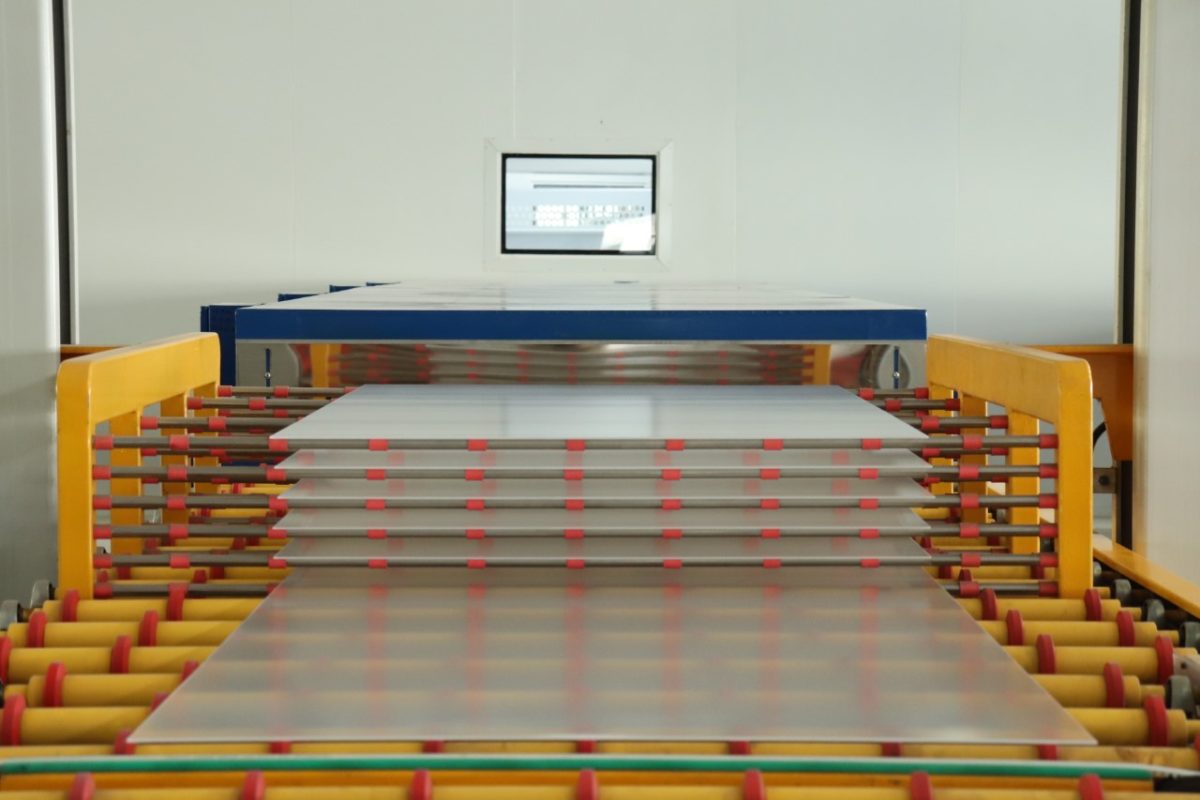Textured toughened (tempered) glass used in solar PV panels and solar thermal products originating in or exported from China and Vietnam will be subject to antidumping duties in India for six months with effect from December 04, 2024.
The duty has been imposed on “textured toughened (tempered) glass with a minimum of 90.5% transmission of thickness not exceeding 4.2 mm (including tolerance of 0.2 mm) and where at least one dimension exceeds 1500 mm, whether coated or uncoated.”
Chinese producers Shaanxi Topray Solar, Anhui Flat Solar Glass, Flat Glass Group, Anhui CSG New Energy Material Technology, and Wujiang CSG Glass face highest duties of $677 per metric ton, whereas Dongguan CSG Solar Glass and Xinyi Group entities Guangxi Xinyi Photovoltaic Industry, Xinyi PV Products (Anhui) Holdings, and Xinyi Solar (Suzhou) are subject to the lowest duty of $673 per metric ton. Zhangzhou Kibing Photovoltaic New Energy Technology, Hunan Kibing Solar Technology and Ningbo Kibing Photovoltaic Technology face a duty of $674 per metric ton.
Solar glass from Vietnam has been slapped with a duty of $565 per metric ton.
The ruling follows DGTR recommendations based on the findings of its anti-dumping investigation. The investigation was initiated on the application of Borosil Renewables Ltd on behalf of the domestic solar glass manufacturing industry. In its application to the DGTR, Borosil Renewables alleged that dumped imports were undercutting the prices of the domestic industry.
In its investigation, DGTR noted the solar glass imports from China and Vietnam (totaling 779,017 MT) constituted almost the entirety of the imports into India, with a share of 98% during the period of investigation. Imports from China grew from 29,324 MT in 2020-21 to 659,732 MT during the period of investigation.
The DGTR noted that the landed value of the imports was below the selling price of the domestic industry throughout the injury period. During the period of investigation, the landed value of the imports remained lower than the cost of sales of the domestic industry and its domestic selling prices. This prevented the domestic industry from keeping its price in tandem with the cost of sales.
The authority also observed the domestically produced textured toughened (tempered) glass and imported product from China and Vietnam are comparable in terms of characteristics such as physical characteristics, manufacturing process & technology, functions & uses, product specifications, pricing, distribution & marketing and tariff classification of the goods. The two are technically and commercially substitutable.
The DGTR said the imposition of anti-dumping duty would not affect the availability of the textured toughened (tempered) glass as the domestic industry has the capacity to cater to almost 84% of the entire Indian demand. [Apart from Borosil Renewables, there are four other domestic producers, namely, Gobind Glass & Industries Ltd, Triveni Renewables, Vishakha Glass, and Gold Plus Float Glass, which commenced solar glass production in the period of investigation.]
A reference price is used for calculating the extent of antidumping duty to be levied on imports of solar glass from China and Vietnam. The applicable duty is the difference between the landed cost of imports, including basic customs duty, and the reference price.
The Solar Ancillary Manufacturers’ Association estimates the antidumping duty to increase the cost of module imported from China by 48 paisa per watt peak for a conventional module with back sheet and by 63 paisa per watt peak for a 2mm glass-glass module. In the case of imports from Vietnam, the added cost will be 29 paisa per watt peak for a conventional module with back sheet and 41 paisa per watt peak for a 2mm glass/glass module. There is no anti-dumping duty on imports from Malaysia.
This content is protected by copyright and may not be reused. If you want to cooperate with us and would like to reuse some of our content, please contact: editors@pv-magazine.com.









3 comments
By submitting this form you agree to pv magazine using your data for the purposes of publishing your comment.
Your personal data will only be disclosed or otherwise transmitted to third parties for the purposes of spam filtering or if this is necessary for technical maintenance of the website. Any other transfer to third parties will not take place unless this is justified on the basis of applicable data protection regulations or if pv magazine is legally obliged to do so.
You may revoke this consent at any time with effect for the future, in which case your personal data will be deleted immediately. Otherwise, your data will be deleted if pv magazine has processed your request or the purpose of data storage is fulfilled.
Further information on data privacy can be found in our Data Protection Policy.